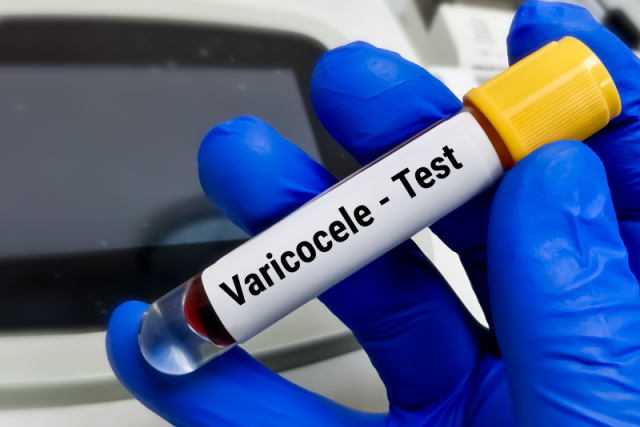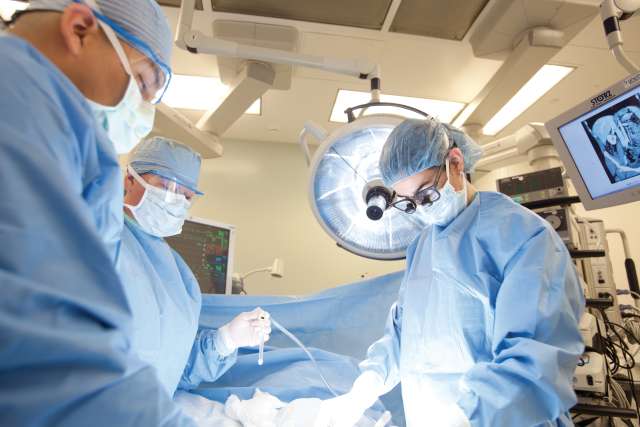In recent years, the human microbiome has increasingly been recognized as a crucial factor affecting various aspects of health, including digestion, immunity and mental well-being. However, its impact on reproductive health, particularly male fertility, remains an area that is ripe for research.
Furthering that shed light on how some organisms in the microbiome of semen could influence male fertility, UCLA Health researchers are now studying how an anatomic condition called a varicocele might further influence the microbiological environment.
Varicoceles and Their Impact on the Semen Microbiome
Varicoceles are varicose veins in the scrotum and are associated with low sperm production and decreased sperm quality, contributing to male infertility.
Vadim Osadchiy, MD, a fourth-year resident in urology at UCLA Health, along with colleagues Jesse Mills, MD, and Sriram Eleswarapu, MD, PhD, are now studying if and how a varicocele may affect the semen microbiome and fertility, and if surgically repairing these varicoceles can, in addition to correcting the anatomic anomaly, improve male fertility by restoring the semen microbiome to a more normal state.
The procedure, called a varicocelectomy, involves the surgical repair of the affected veins and is often recommended for men experiencing infertility or testicular pain associated with this condition. Dr. Osadchiy's study aims to compare the semen microbiome before and after varicocelectomy to discern if men who show improvements in fertility and semen parameters will also exhibit significant changes in their microbiomes.
The Role of Specific Microorganisms
A notable finding from Dr. Osadchiy's earlier published research is the association between the microorganism Lactobacillus iners and impaired sperm motility. This bacterium is also commonly found in the vaginal microenvironment, raising questions about the exchange of microbiomes between sexual partners.
"The potential of mixing of the microbiomes during unprotected sex is not something that has been thoroughly studied," Dr. Osadchiy noted. This could mean that microbiome imbalances in one partner could potentially affect the other, further complicating the landscape of infertility treatment.
Semen Analysis and Alternative Treatments
Semen analysis remains a cornerstone of fertility diagnosis and treatment. Dr. Osadchiy notes that better diagnostic tools for men struggling with infertility are necessary. He advocates for the integration of microbiome testing into this process to provide a more comprehensive understanding of male reproductive health. Doing so could help guide urologists in counseling patients on the potential benefits of, for example, varicocelectomy for improvements in semen quality.
While research on the semen microbiome is still in its infancy, Dr. Osadchiy underscores the importance of optimizing general health for improving fertility. "Exercising, eating healthier, having a healthier gut microbiome — all of these things are good for us and probably good for the semen microbiome, as well," he says. A healthier lifestyle can lead to a less inflammatory environment, which may be beneficial for the semen microbiome and overall reproductive health.
Potential treatments
The connection between the microbiome and male fertility is a burgeoning field, with significant implications for future research and treatment strategies. Dr. Osadchiy's work highlights the potential for microbiome-targeted therapies and the need for more high-quality studies to unravel this complex relationship.
By focusing on both microbiome health and general wellness, men dealing with infertility may find new avenues for improving their reproductive outcomes. "Men struggling with infertility should see a urologist who specializes in infertility,” Dr. Osadchiy says.




